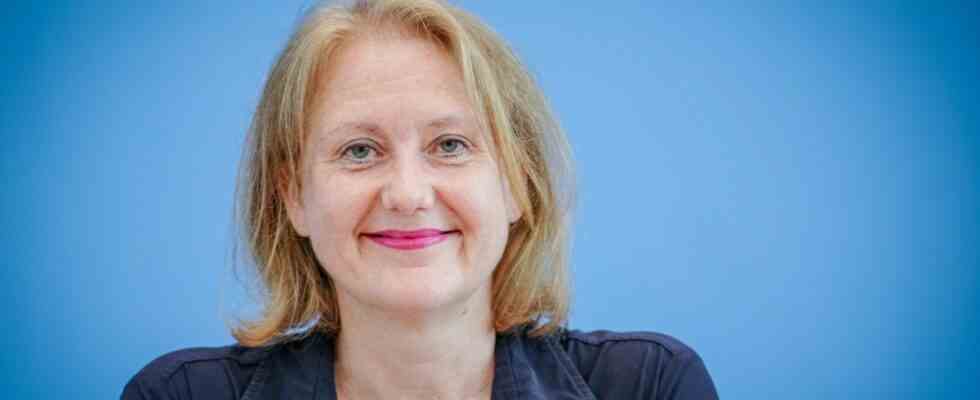The basic child security is considered one of the most important socio-political projects of the traffic light government and the central political project of Family Minister Lisa Paus (Greens). Since this Thursday, there has been a key issues paper on basic child security in the world, which was sent by the Federal Ministry for Family Affairs to the other departments involved and which the Süddeutsche Zeitung present. Ministries of finance, labour, education and construction are involved. The legislative process, it says, should begin after the 2023 summer break.
The basic child security is intended to bundle the numerous services that are available for children in Germany, but many parents are not aware of them and therefore do not take advantage of them. Specifically, the new benefit should consist of two components: an income-independent guaranteed amount, which replaces the current child benefit of 250 euros per month per child and should be at least as high, and an additional contribution graded according to age, which depends on the income of the child and the parents.
The declared goal is to combat child poverty by providing higher benefits and more children receiving state support. However, the amount of the basic child security will only be determined later. In addition, according to the key issues paper, more incentives should be created to work. So far, the loss of several social benefits can result in high deductions if someone earns more money.
Families shouldn’t have to chase after the money
The new model is also intended to achieve more distributive justice, in that the guaranteed amount of basic child security should be just as high as the maximum tax relief through the child allowance. Today, top earners in particular benefit from the fact that the child tax allowance can be higher than the child benefit, which means they save more taxes than others receive in child benefit.
In addition to the amount of benefits, easier access is crucial for Paus: A simple income check and the bundling of various socio-political benefits, the paper says, should make it easier for applicants. An automated so-called basic child security check should therefore be compared with the tax data provided by the tax authorities to determine whether there may be a claim to the additional amount. A new child support agency that is to be set up would inform potentially eligible parents that they can apply for the additional amount. “We don’t want families to have to run after money,” Paus told the FAZ in December. Currently, child benefit, child allowance and benefits from the education and participation package have to be applied for at different places, at the family benefits office of the Federal Employment Agency or at municipal offices and job centers.
Ultimately, the basic child security should also bundle and replace the benefits for children in the basic income, in social assistance and in the asylum procedure.
Attempts to evaluate and combine the various services for children in Germany were made years ago in the Ministry for Family Affairs, under Ursula von der Leyen (CDU) the thicket of services should be sifted through and checked to see what actually makes sense and what may be mutual excludes. Several commissions were set up for this purpose; a table was created with around 150 marriage and family-related benefits, which included widow’s pensions and non-contributory co-insurance with the health insurance company. However, these evaluations had no concrete consequences.
Annalena Baerbock, the Green candidate for chancellor at the time, took the offensive in the election campaign with the promise to finally introduce simplification during this legislative period and thereby concretely improve the financial situation of needy children. The first family minister in the traffic light coalition, Anne Spiegel (Greens), had already emphasized basic child security as an important project of the coalition – her successor Lisa Paus, who as a Green finance politician in the Bundestag has been dealing with the issue for years, raised it to the core concern of her term of office. Shortly before the turn of the year, Finance Minister Christian Lindner (FDP) stated in an internal ministry paper that the design of the basic child security system entailed “the considerable risk that the work incentives for low-skilled workers would be adversely affected for good reasons”.
Around 2.8 million children and young people in Germany are currently living on government subsistence benefits, 1.6 million of them despite their parents being gainfully employed. This affects around every fifth child. In 2025, basic child security is to be paid out for the first time.

